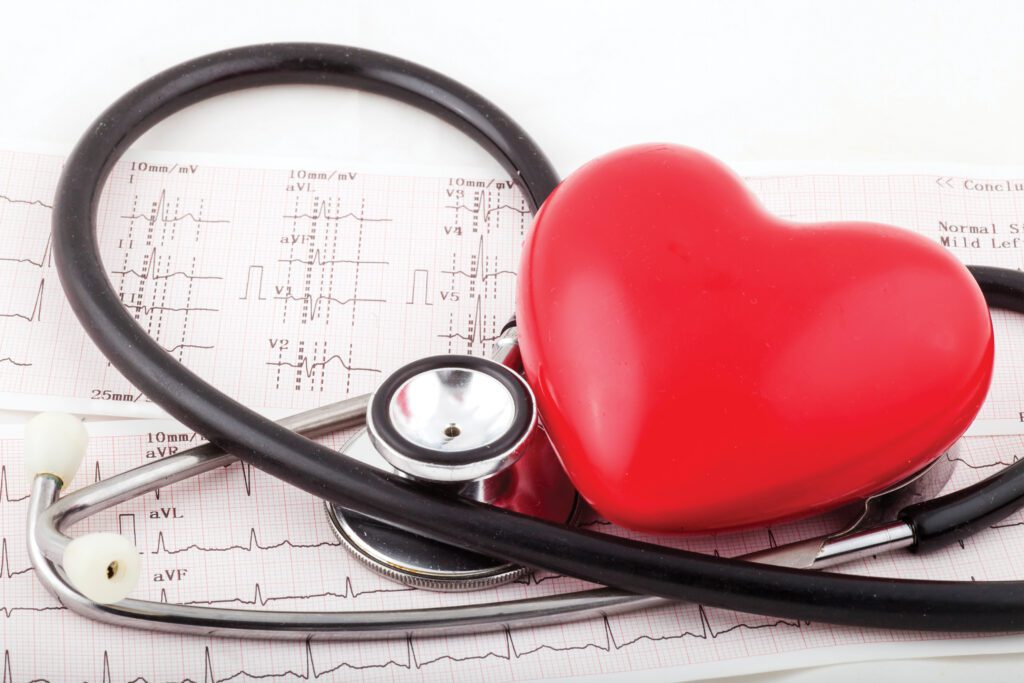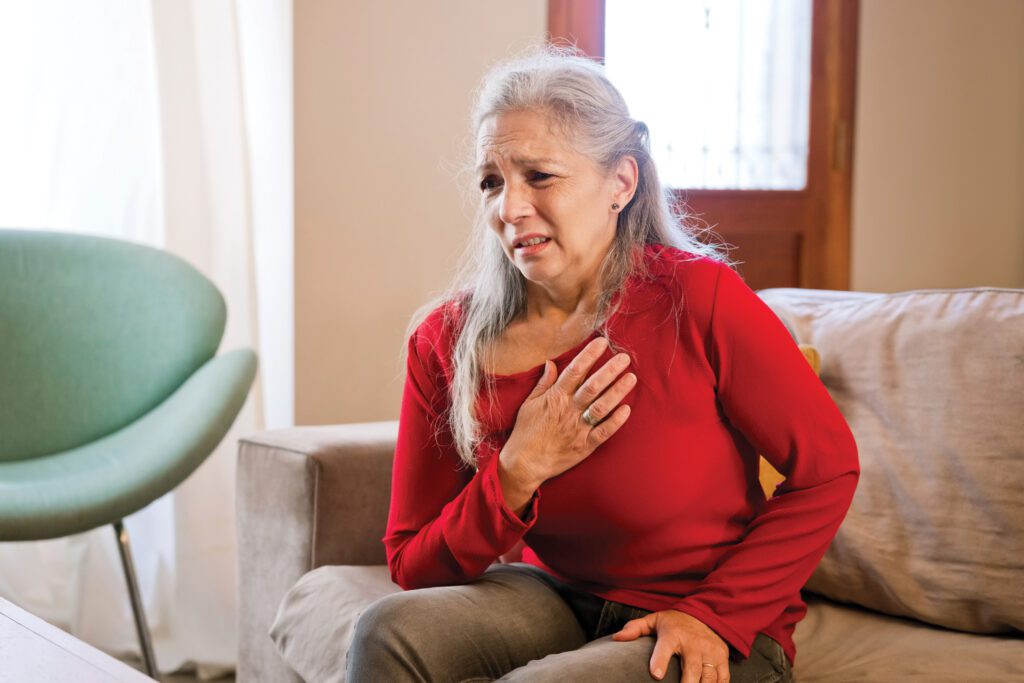Learn the facts, the symptoms, and how to reduce your risk for cardiovascular disease – the number one killer of women.


Remember that saying from the playgrounds of your youth: anything boys can do, girls can do better? Unfortunately, this little homage to girl power applies to heart disease too.
Long mistaken as just a men’s disease, cardiovascular disease is rampant among women. We line up for our yearly mammogram and pelvic exam and feel like we’ve successfully advocated for our health, all the while unaware of the fact that heart disease kills one in three women—that’s more than all forms of cancer combined. One woman dies every minute from a heart attack or stroke. It’s the number one cause of death for Hispanic, African American, and Caucasian women in America.
“Unfortunately, in Tennessee, our rates of cardiovascular mortality in women are disproportionately higher than most other states,” says Dr. Philip Lehman, a cardiologist with The Chattanooga Heart Institute at CHI Memorial. But the good news is, many of these deaths are preventable with awareness and lifestyle changes.
What Causes Cardiovascular Disease?
According to Dr. Lehman, “Cardiovascular disease occurs when plaque builds up in arteries, a process known as atherosclerosis. When this occurs in the arteries supplying the heart, we call this coronary artery disease. In some patients, this narrowing occurs gradually over time, which can cause symptoms like chest pain, shortness of breath, or fatigue. Occasionally, these plaques may rupture, and when they do, this causes a myocardial infarction, known more commonly as a heart attack.”
Cardiovascular disease is more common in postmenopausal women due to the decline in estrogen, the hormone that helps retain flexibility in the blood vessels, but genetic influences and risk factors such as smoking and poor eating habits can cause heart disease in women of all ages.
Sneaky Symptoms
Heart attack symptoms can be frightening signs that there’s something wrong with your heart, but many of these signs differ for men and women. Picture someone having a heart attack. If you are like most Americans, your mind goes immediately to a middle-aged, overweight man in a suit, clutching his chest and falling dramatically to the ground. You can thank movies and television for that image, but it’s not accurate. Women have heart attacks at all ages, and their symptoms don’t always include chest clutching and dramatic falls.



What to Look for:
Pressure in the chest
Unlike the intense chest clutching we see in films, women may experience more subtle symptoms, such as pressure in the chest. This can be experienced as a fullness, squeezing, or painful sensation in the center of your chest that lasts more than a few minutes or comes and goes.
Sweating and shortness of breath
When you haven’t exercised excessively but you are sweating and struggling to catch your breath – that is a sure sign that something isn’t right. These symptoms are often associated with heart problems in women, especially when they are experienced in conjunction with chest pain and other common cardiovascular symptoms.
Excessive fatigue
As a woman, your life is full of places to be and things to do, and we all experience levels of fatigue in our daily lives. However, if the fatigue renders you unable to complete daily tasks that you are usually able to handle easily and there isn’t a clear cause, you may need to seek medical care.
Pain in the neck, jaw, stomach, or back
Heart attacks and cardiovascular problems can trigger nerves in the jaw, back, stomach, and neck area. If you experience pain like this without injury or excessive use of those muscles, this could be a symptom of a heart attack. You may be familiar with pain in the left arm or shoulder as a common signal of a heart attack, but in women, the pain can be in either arm. Jaw pain typically occurs on the lower left side of the jaw during a cardiovascular event.
Nausea
Many women report feeling flu-like symptoms, including nausea, before having a heart attack. While every episode of nausea should not be treated as an emergency, when combined with any other common heart attack symptoms in women, it is best to err on the side of caution.
Unfortunately, many of these symptoms are associated with other common conditions such as the aging process, lack of sleep, menopause, and the flu. As caretakers of our families, we are often tempted to put our own health on the backburner and chock whatever our symptoms are up to something non-threatening. We commiserate with our girlfriends and choose to ignore the cold sweats, fatigue, and chest pain.
We think, surely this is just part of normal aging. It will pass.
This is where we are wrong. Approximately 90% of adult women have at least one risk factor for heart disease, and it is our job to pay attention to our bodies and seek medical attention when we need it.
Knowledge is Power: Reducing Your Risk
The behaviors and genetic factors that can put you at an increased risk for heart disease are things that you already know aren’t good for you. Dr. Lehman recommends, “Be proactive, and do the difficult things that prevent heart disease progression. If you smoke or are around a smoker, quit or ask the smoker to do so outside. If you are overweight, weight loss will reduce not only the likelihood of coronary disease, but also high blood pressure and stroke. Diabetes is a huge risk factor for cardiovascular disease, so controlling your A1c (your blood sugar levels)– ideally through weight loss – will pay huge dividends down the road. And lastly, there are certain patients who benefit from being on cholesterol medications known as statins, even if they haven’t had a heart attack.”
Even if you are at a healthy weight, not getting your heart pumping with exercise on a regular basis can put you at an increased cardiovascular risk. Working in just 30 minutes of daily exercise can decrease your risk of heart disease by up to 40%. Following a healthy diet, in conjunction with regular exercise, can reduce the number of heart-related premature deaths in women by up to 72%.
Start Early with Screenings
If you are decades away from menopause and think heart disease isn’t something you have to worry about yet, think again. The American Heart Association recommends that testing begin at the age of 20. This is the age that women begin to develop plaque in their arteries, so catching these conditions early and addressing them with a healthy diet and lifestyle habits can help prevent future heart disease and even death. There is no doubt that your health and your life are worth the effort, so grab a buddy, get moving, and change your life. Your heart will thank you.



Dr. Philip Lehman
Cardiologist, The Chattanooga Heart Institute at CHI Memorial

